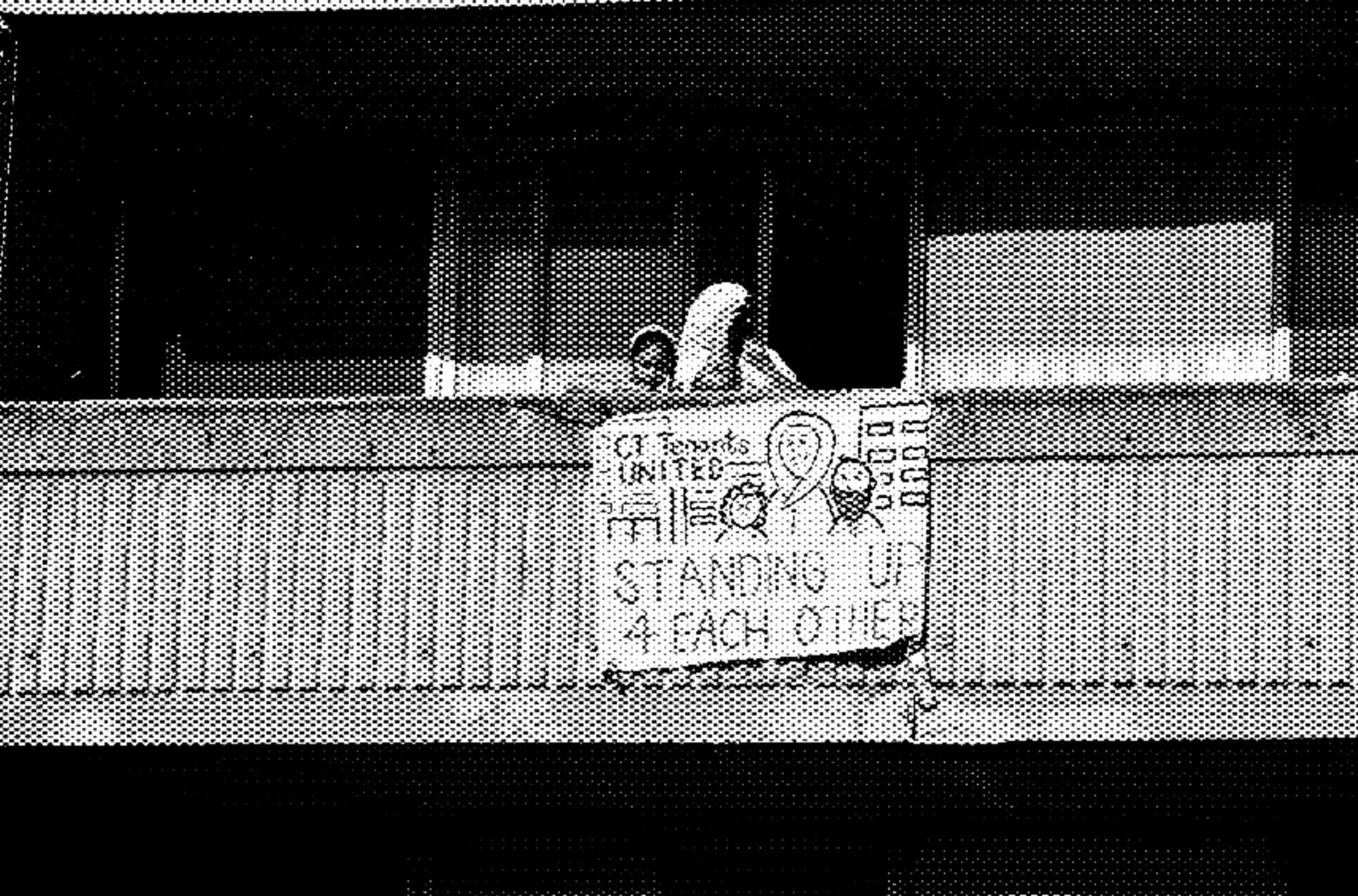
Stop COVID evictions.
Rent relief now.
A demand for social justice and public health
Authors:Noaman G. Ali, PhD, Assistant Professor of Political Economy, Lahore University of Management SciencesYuly Chan, PhD Student, York UniversityFaraz Vahid Shahidi, PhD, Social EpidemiologistMartine August, PhD, Assistant Professor of Planning, University of WaterlooExecutive Summary
This policy report was written in support of the renters’ movements across the Greater Toronto Area. Tenants have been organizing to fight evictions to ensure that working-class and racialized people remain housed, so as to protect themselves and their communities during the COVID-19 global pandemic. It is imperative that elected and appointed officials address the growing eviction crisis as a public health crisis. They must use their emergency powers to take drastic measures that would immediately alleviate these crises and improve the lives of renters who are facing homelessness, while also curbing the spread of COVID-19.
As COVID-19 cases hit record levels and the healthcare system is challenged once again, the Province of Ontario has imposed a new 28-day lockdown starting November 23, 2020. The Mayor of the City of Toronto and its Chief Medical Health Officer have emphasized the importance of staying at home. At a time when our public health response to the pandemic rests so heavily on people’s ability to shelter in place, no person should be at risk of losing their home.
Despite that, thousands of working-class Torontonians are being thrown out of their homes by the Landlord and Tenant Board, the sheriffs, and the Toronto Police Services. In October alone, the Landlord and Tenant Board held over 2,900 hearings, most of them pertaining to non-payment of rent. The virus and lockdowns have led to increased job losses and economic insecurity among tenants, forcing them to choose between costs like food and paying the rent.
Yet, housing in Toronto was unaffordable long before the COVID-19 crisis began, in great part because large landlords who monopolize ownership of shelter have enriched themselves through price gouging and profiteering. Working-class tenants should not pay for a crisis that results directly from more than three decades of government policies that have systematically benefited the real estate industry and large landlords.
Large landlords should pay for the crisis.
The COVID-19 response measures taken by different levels of government have benefited landlords at the expense of tenants, either saddling tenants with even more debt or using public funds to subsidize the private profiteering of landlords. These measures show that authorities are more willing to protect landlords’ rights to private profit, including through police force, rather than the human right to housing.
Governments must follow the lead of tenant struggles and concretely champion emergency measures to keep working-class people housed. This entails:
1. Stopping COVID Evictions:
The Province of Ontario should impose an evictions moratorium that is indefinite and co-extensive with the complete end of COVID-19 and associated economic disruption. An evictions ban should be retroactive to August 1, 2020, and evicted tenants should be let back into their units or landlords should pay them damages.
If the provincial government is unable or unwilling, then the City of Toronto’s officials – the Chief Medical Health Officer and the Mayor – should use their duly constituted emergency powers to impose such an evictions moratorium immediately and without delay.
The City of Toronto should immediately and without delay amend its bylaws that criminalize living on City public property. These include parks bylaws that criminalize camping and building of structures. People who have been compelled to join encampments due to the abhorrent state of overcrowded shelters should not be penalized with even more instability.
2. COVID-19 Rent Relief:
Tenants who have been unable to pay rents should have their arrears forgiven, and the rents of those who are unable to pay on an ongoing basis should also be forgiven.
Landlords should absorb 100% of the costs of forgiving arrears and suspended rents out of their already substantial profits, and not out of public funds.
Public rental subsidies should only be used to pay the rents of “mom and pop” small rental owners (i.e., those who own less than five rental units).
The COVID-19 pandemic offers the unique opportunity for government authorities to undertake unprecedented action in beginning to address long standing injustices. As the city faces the full weight of the second wave of COVID-19 and case numbers rising to record levels, the task of ensuring decent, stable, secure and affordable housing for all must be a fundamental priority for public health agencies and government authorities.

